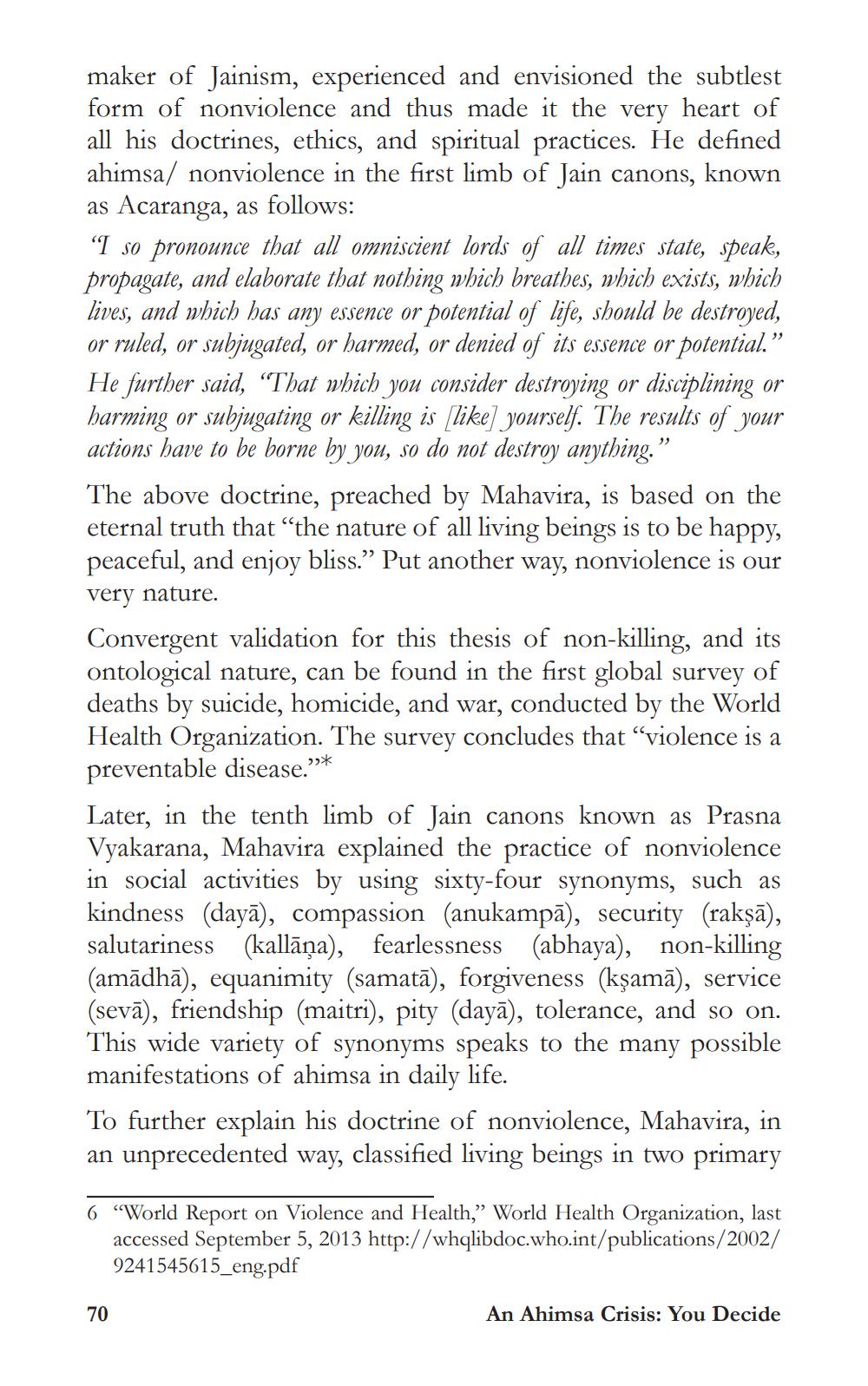________________
maker of Jainism, experienced and envisioned the subtlest form of nonviolence and thus made it the very heart of all his doctrines, ethics, and spiritual practices. He defined ahimsa/ nonviolence in the first limb of Jain canons, known as Acaranga, as follows: “I so pronounce that all omniscient lords of all times state, speak, propagate, and elaborate that nothing which breathes, which exists, which lives, and which has any essence or potential of life, should be destroyed, or ruled, or subjugated, or harmed, or denied of its essence or potential.” He further said, “That which you consider destroying or disciplining or harming or subjugating or killing is like yourself. The results of your actions have to be borne by you, so do not destroy anything." The above doctrine, preached by Mahavira, is based on the eternal truth that “the nature of all living beings is to be happy, peaceful, and enjoy bliss.” Put another way, nonviolence is our very nature. Convergent validation for this thesis of non-killing, and its ontological nature, can be found in the first global survey of deaths by suicide, homicide, and war, conducted by the World Health Organization. The survey concludes that “violence is a preventable disease."* Later, in the tenth limb of Jain canons known as Prasna Vyakarana, Mahavira explained the practice of nonviolence in social activities by using sixty-four synonyms, such as kindness (dayā), compassion (anukampā), security (rakņā), salutariness (kallāņa), fearlessness (abhaya), non-killing (amādhā), equanimity (samatā), forgiveness (kşamā), service (sevā), friendship (maitri), pity (dayā), tolerance, and so on. This wide variety of synonyms speaks to the many possible manifestations of ahimsa in daily life.
To further explain his doctrine of nonviolence, Mahavira, in an unprecedented way, classified living beings in two primary
6 "World Report on Violence and Health,” World Health Organization, last
accessed September 5, 2013 http://whqlibdoc.who.int/publications/2002/ 9241545615_eng.pdf
70
An Ahimsa Crisis: You Decide




